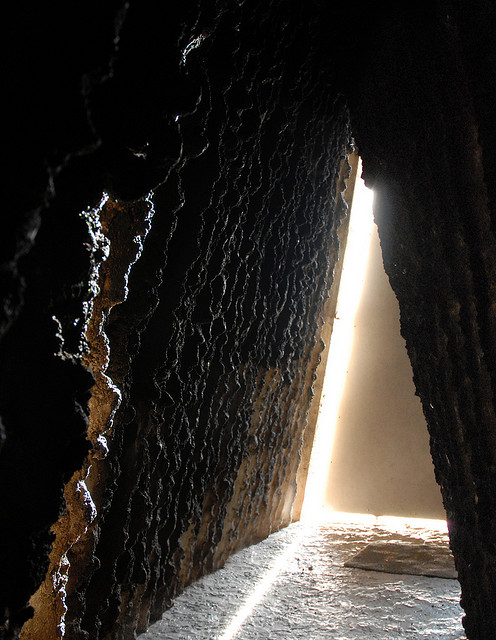
The new moon falls this month on Friday, December 11.
It ushers in the darkest night of the year, when the moon settles in between the sun and the earth, and turns its illuminated face away from us.
On Friday, the moon will disappear. Its light will abandon us.
We will be thrust into darkness.
Or so it will seem.
The advent of the darkest night also arrives on the sixth night of Hanukkah. The Jewish calendar is lunar, its holidays set according to the phases of the moon. Hanukkah for example, must begin five days before the arrival of the new moon.
It is no accident that in December, Jews are commanded to light candles during, into and through the darkest day of the year.
Hanukkah is the story of the miracle of surviving the darkest days. It has nothing really to do with dreidels and candles and latkes.
The holiday commemorates the Jewish struggle for religious freedom.
It’s a tale of rebellion, Jews rising up against a murderous king bent on their annihilation. It’s a chronicle of endurance, found in a band of warrior brothers stationed in caves on the outskirts of Jerusalem, who relied on guerrilla tactics to resist their oppressor.
It’s a story about resilience, in the shape of Judah—the most bad ass of the brothers—who took the name Yehuda HaMacabbi, “Judah the Hammer.” He faced an army of 40,000 sent to put down his Maccabee rebellion. Though vastly outnumbered, Judah and the Maccabees outlasted the king’s soldiers, and returned to liberate Jerusalem.
It’s a reassurance about the inevitability of light, in the form of only enough oil for just one day, which burns without explanation instead for eight.
In a triumphant gesture, The Maccabees rededicated the Temple by installing a battered, cheap menorah—the only one left after the kings’ soldiers had sacked the place—and went to light it. They found only enough oil for one day. We all know the rest. They lit the menorah anyway, and without explanation, the oil burned for eight days, the exact time it took to produce more oil.
I have a friend who has lost almost everything. Her home, and all the friends that went along with it, as well as her career, and possibly her marriage. She calls me, swallowed in grief. I try to persuade her that her troubles are only temporary, that the light will return, but my assurance comes out sounding like a drugstore greeting card platitude.
Instantly I want to it back; my words taste like ashes in my mouth.
My friend is unconvinced.
Who could blame her.
No one living through the darkest days, wants to hear a puerile cliché about how the light will return. “It’s always darkest before the dawn.” How does that pay the mortgage, find affordable health insurance, fix anyone’s problems? Even I want to smack me.
Cliches don’t make anyone feel better. And they don’t solve actual problems. But since most of don’t have a stable of friends waiting to pay our mortgage, what do we do, when we are goaded into believing the light has abandoned us? Just give up?
I want to say something hopeful. I want to say, the light is still there, it’s just that—like the new moon hiding between the sun and the earth—you can’t see it right now. I want to make her believe that the promise of the light’s return can be found. It’s in smallish things, like the irony that the new December moon, the darkest night of the year, falls in the middle of Hanukkah, the Jewish celebration of the miracle of light.
I want to tell her to light candles.
But I don’t have to say anything. My friend who lost almost everything tells me now she has had a curious uptick in random acts of stranger-kindness: The agent on the phone uncharacteristically helpful in solving a thorny bureaucratic snafu; an unexpected present in the mail, a check that arrives just in time to pay the electric bill.
Maybe some splinters of light are beginning to pierce the darkness.
Maybe the moon is waxing again, even if only visible in the slenderest of crescents.
Relephant Reads:
The Ways the Moon Pulls (& a New Moon Poem).
The Gift of Darkness.
Winter Solstice—a Bridge to New Beginnings.
Author: Diana Jeffrey
Editor: Renée Picard
Photo: seier at Flickr











Read 0 comments and reply